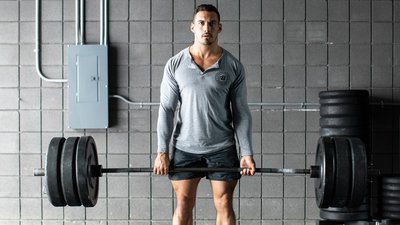The road to swole is never easy. Just ask Brian DeCosta. His sheer determination was the key to his remarkable transformation, which took him from college student to busy working professional to successful fitness coach, teaching other professionals how to get in shape.
Growing up outside Boston, Massachusetts, DeCosta was a skinny, 149-pound soccer player and track-and-field athlete when a girl insulted him on the school bus. He was motivated to take a weightlifting class and found instant success with his workouts, but his relationship with food was anything but successful. DeCosta dates his first episode of binge eating to his sophomore year in high school, and throughout high school he progressed to a full-blown eating disorder. His subsequent success in beating bulimia reveals the true strength that powers this entrepreneur and Team Bodybuilding.com athlete from within.
After high school, DeCosta studied accounting and finance at West Virginia University and was holding down a dream job in Washington, D.C., when he began wondering if there was more to life than numbers and 9-to-5. When he totaled his car, the search for answers gained a new urgency and he shifted focus to his longtime passion for iron.
Thus began the most recent stage of Brian DeCosta's transformation—he became a social media celebrity, took second at the 2017 Bodybuilding.com BodySpace Spokesmodel contest, quit his job, moved to Southern California, and became a full-time coach and entrepreneur.
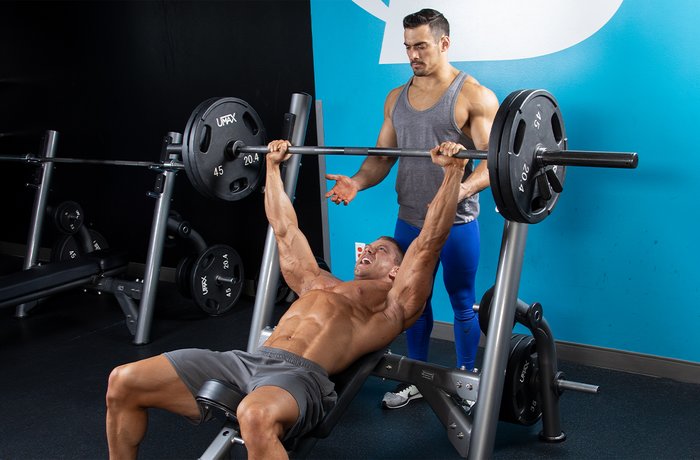
It started when DeCosta began helping others on social media balance the pieces of their day-to-day lives: workouts, diet, and career. A natural in front of the camera, DeCosta comes alive as he shares his story, and people began to follow him. Thousands and thousands of people.
Recently, DeCosta shared the details of his struggles with bulimia, including a YouTube video posted in September 2018. The response has been overwhelming from men sharing similar experiences. Recent figures indicate that as many as 33 percent of those suffering from eating disorders are men. Yet as DeCosta points out, men—particularly men in the fitness industry—are more hesitant to talk about it than women. By sharing his struggles and strength, he's been able to make an impact, aiding and inspiring many others.
For DeCosta, physical strength plus inner strength has become a formula for success. As he describes his triple transformation—from scrawny to brawny to healthy from the inside out—it's clear that the soul-searching DeCosta employed in his battle with bulimia (plus a knack for marketing and social media) have helped him shape a career of his dreams to match his physique.
What were you like before you took that weightlifting class in high school?
It was my junior year and I lacked any belief in myself or direction. That class opened my eyes to weight training.
What did you love about it?
I loved that I was good at it, and I was noticed right away. Not for the fact that I could lift a lot, but because I started to put on muscle pretty quickly. Some of the football players mentioned it, and I started to identify with them. It took off from there.

In college, you continued to train and learn about working out and nutrition, but you were studying to become an accountant. What were things like for you then?
I was all business, Wall Street style. It was actually a lot of fun. I was in a fraternity, and I was doing well in school. My physique was building. For the first time in my life, I was able to attract the women I wanted to date but never could.
But you developed bulimia. How did that happen?
I started to spiral into a full-out fitness obsession. I had an obsession with being lean, but I wanted to be muscular at the same time. It developed from reading articles on the internet and just not being very informed of how to diet properly. I would always hear about calories in, calories out. When I look back, I realize I was starving myself.
How did you figure out something was wrong?
I was irritable. I was tired. I would go from extreme highs of super-happy moods to extreme lows. Fitness started to not be fun anymore.
I knew that something was wrong my freshman year of college, when I started binge eating. Sophomore year, it turned into bulimia—me trying to get rid of the food that I ate. I tried to control it on my own for three years, until my senior year of college.
What spurred you to change?
I started getting into personal development by reading and listening to life coaches like Tony Robbins, Brendon Burchard, and John Maxwell. That helped me find meaning with my life, as well as purpose. I ended up seeing a psychologist as well, to talk about the eating disorder. I only saw him a couple of times and soon realized that I could do it on my own. Going to see him solidified that I had a disorder. It was motivation enough for me to stop it. I was scared enough to realize I had to stop making myself get sick.

Once you got the diagnosis, what steps did you take to stop?
I told my mother. She supported me through it, talking to me about diet and why I would obsess about food. I realized that it had become a spiral of trying to control aspects of my life with food.
Bulimia is not really about food, it's about control—trying to control that aspect of your life. I didn't really feel in control of my career. I didn't feel in control of my romantic relationship. I didn't feel in control of my family or where I wanted to live. So, when I realized all that, I could just focus on those aspects of my life and figure them out instead of distracting and deflecting. That's when I was able to have power over it.
So it was basically me having a series of realizations through reading, seeing the psychologist, doing personal development work, and learning that the issue is not food.
You began eating better and more regularly?
It was almost overnight. I decided to detach my emotions from food and stop using food to deal with them. I started to view food as fuel: "I'm gonna eat well because it fuels my body. It makes me able to perform well during the day. Yeah, I can eat enjoyable food, but I'm not gonna have some emotion surrounding it."
Many people can't do what you did. Would you agree with that?
I do. I'm a very stubborn person. When I set my mind to something, it can go really south, or it can go really well.
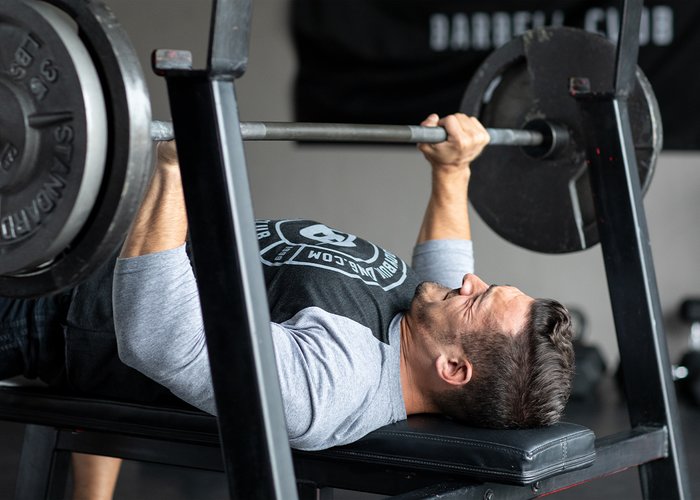
People think of bulimia as something only teenage girls get, but that's not true, is it?
Oh, my God, no. That's why I opened up about my eating disorder. As a male in the fitness industry, I see it across the board. Competitors and guys on magazine covers may look great, but some of them have what I would call an unhealthy relationship with food. But it's just not talked about. It's a "girl thing," right?
But, as soon as I opened up about my experience and shared it on YouTube and social media, I can't tell you how many messages from men in the fitness space I got: "Dude, I'm the same way. I've struggled with this forever. How'd you deal with it? I'm still binge eating."
What do you say to them? Do you urge them to get help if they need it? Not everyone is as determined and stubborn as you are.
When men reach out to me and confide that they've been going through the same thing, I encourage them to seek help, to talk about their struggle with someone—a wife, a girlfriend, a family member, if not a psychologist—and to be vulnerable about it. The biggest thing that men in the fitness industry struggle with is displaying vulnerability and not being the strong macho man, right? So leaning into vulnerability and asking for help is the thing. I also encourage them to read up on it, and tell them they can beat it. They can be bigger than the eating disorder and they can get over it.
What do you do today to keep those demons away?
It's just sharing the journey—being open about yourself and your struggles and being vulnerable and authentic. True strength is saying, "Yeah, I do have this body, and I have a healthy relationship with food now, and I can go out to eat and have a burger and not kill myself over it."
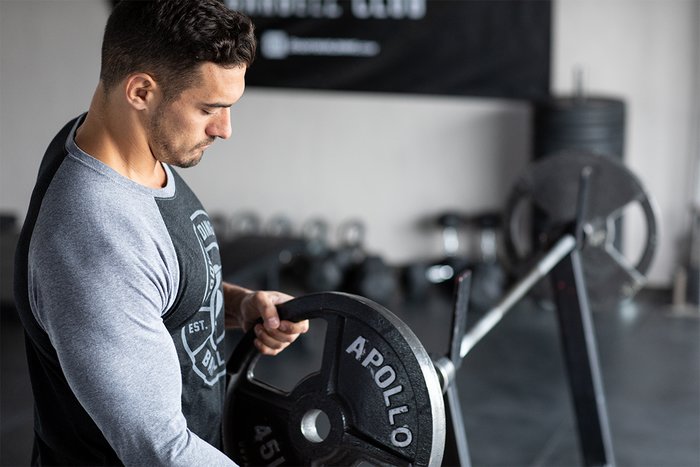
After beating bulimia, you became an accountant, but you weren't happy. How did you zero in on your new career?
The degrees that I got, if I'm being honest, were to please my parents. After school, it became very apparent to me that I had boxed myself into a career that I hated because I wanted to make a decent salary.
I was depressed. At the time, it sounded so crazy to say that. I was 25, with a nice apartment in Washington, D.C., and a new car. I had a good job. Everything should've been good, but I was unfulfilled and very unhappy with the life I had created for myself.
Getting in a car accident and almost dying was the real kick in the ass. I realized I could be gone, and I haven't lived what I'm truly passionate about. I'd been living society's definition of what I should do with my life. I felt like I had nothing to show for it.
With that realization, I was able to do some internal work. "OK, Brian. You're so unhappy. What do you actually want to do?" Then it became clear to me: I haven't missed a week in the gym for eight freaking years. I love the gym. I love training people, teaching my family, my friends.
So I got serious about that. I started sharing free content on YouTube, to show how a busy guy who has a "normal job" can balance going to the gym, being lean, having a lot of muscle, and eating well. I started to gain some subscribers on YouTube, some followers on Instagram. Nothing big. Then I heard of the Bodybuilding.com Spokesmodel Search. I got in the top 20 the first year. Then the next year, I was in the top five, and then I got second in 2017.
When did you make the break with your old career?
I couldn't believe what happened. I was living a surreal life. Two months after the spokesmodel search, I quit my job, and in May 2017, I came to California. I started to grow followers on Instagram, subscribers on YouTube; I started dating a girl who was on Team Bodybuilding.com who has a huge audience. It all came so fast, it hit me like a freight train. I was lost and confused at the beginning of the year.
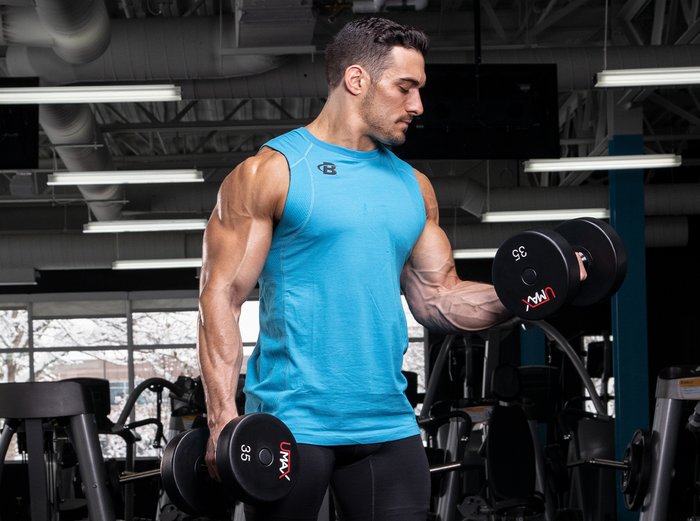
How did you turn it around?
I got dead serious about asking, "How can I grow a legitimate business? How can I grow a coaching business where I can truly help people transform their lives?"
Now, I'm doing well, better than I did as an accountant. I have a team of people who work under me. It's much different than being in a cubicle.
Are you happy?
Yes, I'm much happier than I've ever been.
If you're struggling with an eating disorder (or if someone you know is), you're not alone. Check out the National Eating Disorders Association for information, resources, and support.



